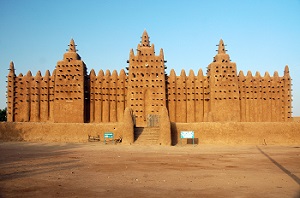Success tips when doing business in Mali in 2025
- Clients are advised do try and learn French since English in barely spoken in Mali. French is the official language in Mali. Approximately 90% of the Malian population also communicate in Bambara, the lingua franca which is the marketplace language of the country;
- Mali being a 90% Muslim population, Clients are advised to observe a strict dress code at all times, during formal and informal meetings;
- Local connections and knowledge are key to navigating the red tape and complex lists of approvals and regulations to manage local talent and to get access to local resources like land;
- Our Clients should beware of local holidays and business norms; most businesses come to a complete standstill during national or religious holidays;
- Titles are a very important part business in Sub-Saharan Africa, always refer to potential Clients correctly as “chief”, “prince”, “boss” or “engineer” when interacting;
- Collaborate with various organizations; co-operate with all levels of government, join forces with the investment world and build strong relationships through networking and attending gala dinners, trade fairs and exhibitions.
Interesting facts about Mali?
- The Republic of Mali is a landlocked sub-Saharan country located in West Africa. Mali shares its borders with Niger to the east, Algeria to the north, Cote d’Ivoire and Burkina Faso to the south, Senegal and Mauritania to the west and Guinea to the south-west;
- Mali’s capital city is Bamako and is considered the sixth fastest growing city in the world and first in Africa. “Bamako” is derived from the Bambara language, meaning “crocodile river”;
- Agriculture is the backbone of Mali’s economy along with gold and livestock. Major agricultural exports include cotton, millet, rice, corn and tobacco. The minerals mined in Mali include salt, kaolin, limestone and phosphate;
- Mali is considered one of the poorest nations in the world with about 70% of its population earning less than a dollar a day. The unemployment rate in the country is at 12%;
- The prime meridian is located in Gao, Mali and one can literally stand on the edge of the two hemispheres;
- The largest mud-brick building in the world is the Great Mosque of Djenne found in Mali;
- Mali is approximately twice the size of Texas and is the biggest country in West Africa;
- When the emperor of the then Malian Empire, Mensa Musa made his Mecca pilgrimage in the early 1300s, he made Mali famous by bringing with him 60,000 men, 12,000 slaves, 80 camels each carrying between 30 to 50 pounds of gold, and he went building a mosque every Friday along the way;
- Mensa Musa left a lot of gold to the people he met along his way that he literally caused inflation in the regions he passed through, particularly in Cairo, Egypt.


